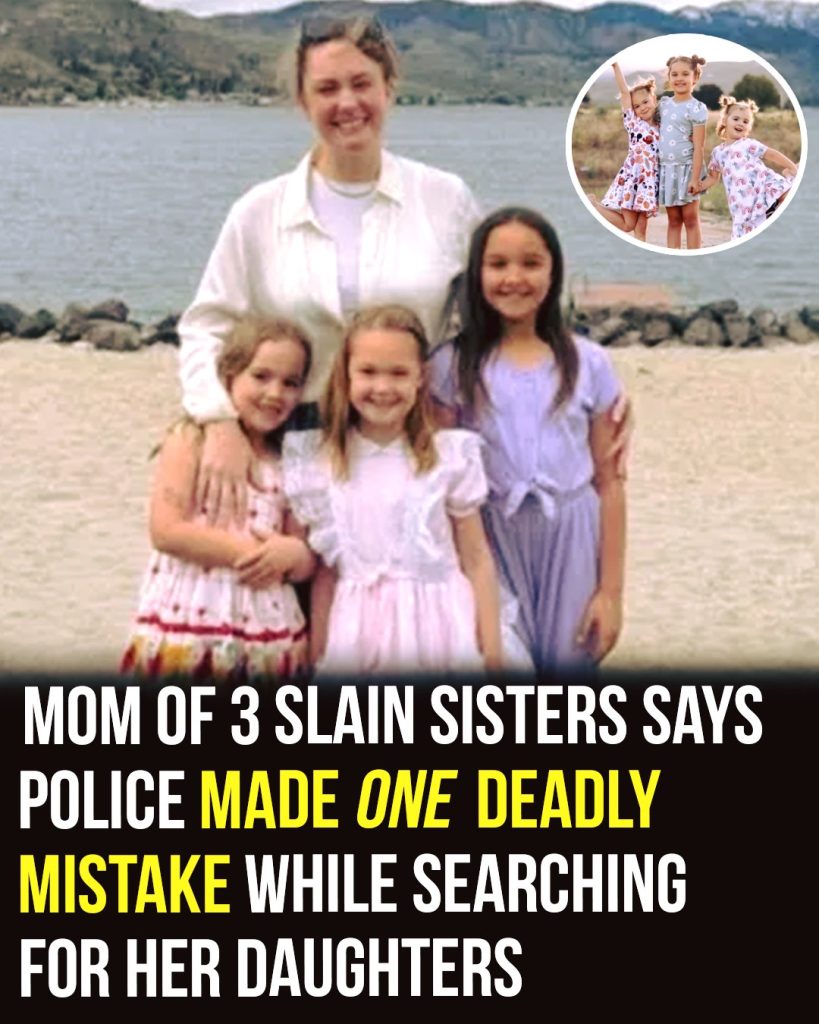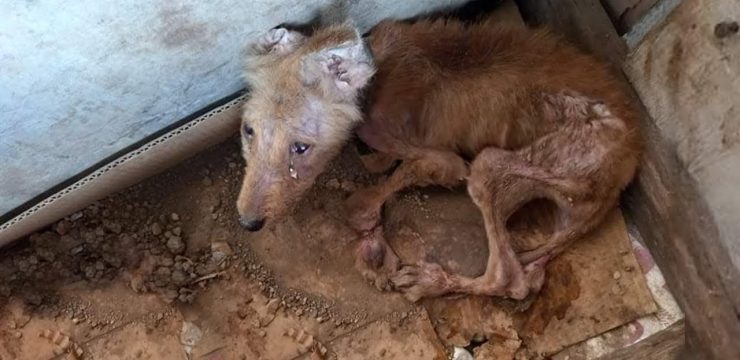In a heartbreaking case that has captured national attention, a grieving mother is demanding justice and accountability after the tragic deaths of her three young daughters—an incident she insists could have been prevented. Whitney Decker is left devastated following the discovery of her daughters’ bodies in a remote area of Washington State. Authorities confirmed earlier this week that 9-year-old Paityn, 8-year-old Evelyn, and 5-year-old Olivia Decker were found near their father’s pickup truck close to Rock Island Campground in Chelan County, approximately 120 miles east of Seattle.

Their father, 32-year-old Travis Decker, is now the subject of an intense manhunt after being charged with three counts each of first-degree murder and first-degree kidnapping. As of now, he remains at large, prompting law enforcement agencies across Washington State to launch a massive search.
According to court documents obtained by ABC News, each of the girls was found with a plastic bag placed over her head and her wrists bound with zip ties—a horrifying scene that investigators say was accompanied by additional disturbing evidence. Near the truck, authorities reportedly found more plastic bags and zip ties scattered throughout the area. The truck’s tailgate showed what appeared to be two bloody handprints, adding to the gruesome nature of the crime.
Whitney Decker had initially reached out to police on Friday to file a civil complaint when Travis failed to return the children after a scheduled visitation. Documents reveal he picked up the girls around 5 p.m. that day. When they weren’t home by 10 p.m., Whitney became alarmed and attempted to contact him multiple times, only to be met with voicemail. In her statement to the police, she noted that Travis had never done anything like this before but was currently battling mental health challenges.
As the search for the missing children continued, authorities learned that Travis Decker had been living out of his white GMC Sierra truck and frequently staying in local motels and campgrounds. Though the visitation was part of a legal parenting plan, officials said he had gone beyond its limits—something they described as out of character and deeply concerning.
On Wednesday, Greg Joyce, the attorney representing Whitney, spoke with reporters following a meeting that included U.S. Marshals and local police. He shared that Whitney, though understandably shaken and tearful, was maintaining her composure and had not yet chosen to speak to the media. Joyce provided more background on Travis, revealing that his life had steadily unraveled following his departure from the Army Rangers about a year and a half ago. Though he received an honorable discharge, he never returned to reserve duty. Unable to secure stable work despite attempts that included minimum wage jobs and talks with a carpenters union, Travis reportedly found it difficult to adapt his military training to civilian life.
Joyce emphasized that Travis had a well-documented history of serious mental illness, likely tied to his military service. He had tried to seek help through veterans services but encountered numerous obstacles, often running into bureaucratic roadblocks that prevented him from getting the assistance he desperately needed. “She really feels that the system let her children down,” Joyce said, speaking about Whitney. “It was the inadequacies in the services for our veterans that killed those children. That’s it.”
One major question the family continues to raise is why an AMBER Alert was never issued. Whitney firmly believes this was a fatal oversight. Despite her concerns and Travis’s known mental health struggles, authorities did not initially view him as a credible threat to his children. Whitney now believes that decision could have ultimately cost her daughters their lives.
The decision not to issue an AMBER Alert has sparked widespread public outrage. The Washington State Patrol, however, defended its actions, explaining that the case didn’t meet the federal criteria required for such an alert. These criteria include confirmed evidence of abduction, the belief that the child is in immediate danger, the victim being under 18, enough descriptive details available, and the child’s name being entered into the National Crime Information Center (NCIC) database.
Because the situation didn’t meet all five conditions, the state instead issued what’s known as an Endangered Missing Person Alert (EMPA). This alert included the names of the three girls, their father, and a description of his vehicle. But unlike AMBER Alerts, EMPAs don’t push notifications to cellphones, meaning many people who might have helped were never made aware. “The difference between EMPA and AMBER, the AMBER has that push notification that we all get on our phones. You have to look at it, you have to address it. The EMPA does not have that,” said Chris Loftis, the Director of Public Affairs for the Washington State Patrol.
In the days following the tragedy, Whitney has received support from her own mother as well as from Travis Decker’s father, who has been in touch and is now flying in from the Midwest to be with the family. Investigators now suspect that Travis may have planned his disappearance in advance. According to Chelan County Sheriff Mike Morrison, there’s reason to believe that Travis may have scouted out and prepared a remote hiding place before the tragedy occurred. “It sounds like at times he would go out and would be living off grid for sometimes up to two and a half months,” Morrison stated during a press conference. “So we understand that that’s a possibility, that he could have scoped out this area before, put supplies out there, and has the ability and the knowledge to survive for a long period of time.”
As the search continues, Whitney Decker is left grappling with unimaginable grief. Her only solace may lie in fighting for systemic change to prevent such a tragedy from happening again. Through her attorney and growing public support, she is raising awareness about the critical need for mental health services for veterans, better emergency alert systems, and policies that prioritize children’s safety. Her story has already touched hearts across the nation—and her fight for justice is just beginning.





